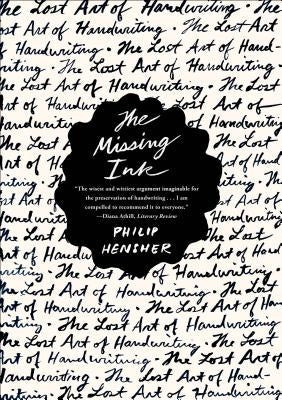Description
The loop of an "l," the chewed-on pen, letters tiny or expansive: what we've lost in the error of typing and texting
When Philip Hensher realized that he didn't know what a close friend's handwriting looked like, he felt that something essential was missing from their friendship. It dawned on him that having abandoned pen and paper for keyboards, we have lost one of the ways by which we come to recognize and know another person: handwriting.
The Missing Ink tells the story of this endangered art. Hensher introduces us to the nineteenth-century handwriting evangelists who traveled across America to convert the masses to the moral worth of copperplate script; he examines the role handwriting plays in the novels of Charles Dickens; he investigates the claims made by the practitioners of graphology that penmanship can reveal personality.
But this is also a celebration of the physical act of writing: the treasured fountain pens, chewable ballpoints, and personal embellishments that we stand to lose. Hensher pays tribute to the warmth and personality of the handwritten love note, postcards sent home, and daily diary entries. With the teaching of handwriting now required in only five states and many expert typists barely able to hold a pen, the future of handwriting is in jeopardy. Or is it? Hugely entertaining, witty, and thought-provoking, The Missing Ink will inspire readers to pick up a pen and write.
Author: Philip Hensher
Publisher: Farrar, Straus and Giroux
Published: 11/12/2013
Pages: 288
Binding Type: Paperback
Weight: 0.61lbs
Size: 8.57h x 6.03w x 0.77d
ISBN13: 9780865478022
ISBN10: 0865478023
BISAC Categories:
- Language Arts & Disciplines | Handwriting
- Art | Techniques | Calligraphy
- History | Social History
About the Author
Philip Hensher is a columnist for The Independent, an arts critic for The Spectator, and one of Granta's Best of Young British Novelists. He has written one collection of short stories and eight novels, including The Mulberry Empire, King of the Badgers, and The Northern Clemency, which was short-listed for the Man Booker Prize. He lives in South London and Geneva.

